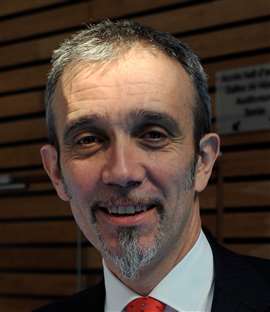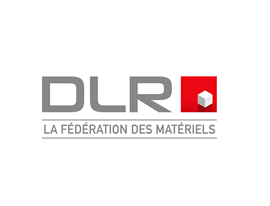Striving for greater ‘rentability’ in France
18 April 2024
As the construction world turns its attention to Paris, France, for the Intermat trade show - taking place on 24-27 April - Rental Briefing spoke with Hervé Rebollo, director general of French rental and distributors association DLR, to help us put our finger on the pulse of the country’s rental market.
While the construction industry is gearing up for one of its largest worldwide events this week - Intermat 2024 - the French rental market finds itself on solid ground but with an eye toward improvement.
“The past year has been okay, it has been a good year,” Rebollo said last week. “The problem is not the quantity of activity, it’s the quality.”
He explained that average rental rates have been declining in France for more than a decade, as much as 20% between 2010 and 2020.
Likewise, price pressure is very strong in France, due to a number of large, worldwide building companies with the clout to negotiate prices to their advantage but to the detriment of the market. Rebollo said DLR has attempted to enlist help from the French government, but so far, the effort has not succeeded. The result is across-the-board average rates that are lower than what is profitable for many French rental companies.
 Hervé Rebollo, director general of DLR, the French rental and distributors association.
Hervé Rebollo, director general of DLR, the French rental and distributors association.
Despite this, Rebollo says his members are not worried, as they are focused on a number of prospects that promise to bring a steady stream of business, many of them infrastructure related.
“Our situation is between not so bad, and not so good,” Rebollo stated, noting that many small to medium-size French rental companies are currently caught up in the dilemma of renting vs selling used equipment. The difference comes with tax ramifications that are often misunderstood or ignored.
“We live a sort of paradox in France, every single thing will be rental in some years. It’s not me saying that, it’s society. We are becoming a rental/consumption society, and the paradox is that in the short-term future, we have to build a business model which is minded like a service model.”
He added, “We are very far from the UK and the US rental model. The notion of services - we have to develop this. I’m not talking about Loxam or any of our top companies. I have about 1,200 rental companies in France, mainly small and medium-sized companies, and they need to make very big progress on many different items.”
For example, Rebollo pointed to the fact that many French rental companies regularly rent equipment without a contract, something that would be unheard of in many other industries. Others resist the digitalization of various aspects of their business because they’re comfortable with their familiar customer base and see no reason to change tack.
“One of our main goals as a French professional organization is to help members become real professionals. There is big work to do.”
He added, “I say this with much respect, but you cannot continue like this, you must change. I’m not talking about the top 10 companies, but more in general: In France, we are late on a lot of things.
 DLR is made up of approximately 1,200 rental companies in France, mainly small and medium-sized businesses.
DLR is made up of approximately 1,200 rental companies in France, mainly small and medium-sized businesses.
“But there is something positive in that portrait, which is that rental companies are very reactive by nature, more than other sectors. I think this is one reason why they are still here, because they react; and they are able to do that very fast.”
Another large event coming to Paris this year is the summer Olympic Games, July 26 through Aug. 11, 2024. When asked if this will provide a boost to French rental companies, Rebollo said it’s uncertain.
“Nobody knows if we will have ‘rentability,’” he said, adding, “It’s so complicated to deliver [equipment]. Prices are under pressure. Clients pay with such delay. We do not find collaborators, especially for maintenance, around Paris. It’s very, very complicated.”
As for his outlook going forward, Rebollo said the rental business is definitely the future, but the challenge is in finding this “rentability” factor.
“For the time being, however, it’s okay,” he said.
French market at a glanceHervé Rebollo, director general for french rental association DLR, provided Rental Briefing with a snapshot of market conditions in France. The following is derived from the organization’s Baromètre T4 2023. Construction and material handling equipment rental companies wrapped up 2023 with solid year-on-year growth, while distribution companies took a hit from the previous quarter. Quarter-on-quarter, growth in the construction equipment distribution sector reached +18% in Q4 2023. However, this was not enough to compensate for the difficulties encountered in previous quarters: Growth remained negative year-on-year, at -2.2%. Construction equipment rental companies experienced a slowdown in their activity in the fourth quarter of 2023, with a tightening of revenue of around -7.4% quarter-on-quarter. The companies surveyed cited difficult weather conditions and unfavorable conditions in the construction industry as a source of concern. Overall performance of the sector for 2023 showed growth of +5.6% year-on-year. Companies in the distribution and rental of industrial and agricultural handling equipment posted positive growth in Q4 2023, both quarter-on-quarter, with +2.5%, and year-on-year, with +12.4%. New construction had a negative impact on retail companies in 2023, despite a rebound in the last quarter. High inflation rates led customers to turn to second-hand rather than new, which had a strong impact on the business of retail companies, year-on-year, while all other businesses experienced positive growth. In line with slowing inflation and rising wages, new homes were doing much better in the last quarter of 2023. This transition bodes well for the remainder of 2024. Construction and material handling equipment rental companies were optimistic about the first quarter of 2024, while distribution companies were not. For leasing, hiring and investment intentions are on the rise. For material handling, investment intentions remain relatively low, but hiring intentions are increasing. As for distribution, companies still have little confidence in the future, with hiring intentions stagnating and investment intentions falling. Overall, financing conditions, which are not expected to normalize before the end of 2024, remain a concern for DLR companies. As was the case throughout 2023, French economic growth is expected to remain sluggish in 2024, around 1%, according to the Banque de France. The situation is brightening, but it will take time to return to normal. Wages are rising and inflation is falling, which should support consumption. Interest rates, however, remain high and are constraining investment, especially in real estate. Central banks don’t expect a rate cut until at least the fall of 2024. Household plans will therefore be further hampered this year. |
STAY CONNECTED



Receive the information you need when you need it through our world-leading magazines, newsletters and daily briefings.
CONNECT WITH THE TEAM








